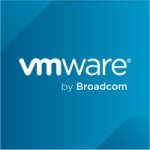They need to make the initial configuration more straightforward, as the networking part is confusing.
I've used it for three years.
I find out that for smaller shops, that have under 50VMs with a 1gb network, you don't need separate iSCSI traffic for your data. I know that all the best practices tell you to separate the traffic, but what I am seeing, is a much better Hyper-V performance if you keep ISCSI traffic with your data traffic. If you can use CIFS instead of the iSCSI, go with CIFS, HyperV loves CIFS.
We did have problems, and you need to make sure that the LUNs have enough space. If you run out of space, you will need to spend a few hours to bring the VMs up.
If you know what you are doing, you can automate the deployment of a new Hyper-V host with a PXE boot and VMM.
Customer Service:
5/10.
Technical Support:
It's 5/10 as it is like a lotto, you never know who you will get on other side. Sometimes you get an expert, and sometimes you get a beginner.
We previously used VMware. The primary reason to switch to Hyper-V was the cost, as Hyper-V is for free.
The networking part is confusing for the beginners
Hyper-V is free, however if you build clusters, you should get a manager to centralize the management. If you are big enough and you have some money, I strongly recommend System Center, which includes VMM and other great tools like Orchestrator. You can automate building your VMs and even your application tiers. Also with VMM, you can automate spinning up new Hyper-V hosts with PXE boot. I configured, I used it, and it works perfectly.
If you are small shop go with a third party Hyper-V manager like 5nine. It is cheap, they even have a free version, and also a converter from VMware is free. I am using it right now and it works great. It includes alerting.
If for some reason you cant get either, you can manage your clusters directly from fail over cluster manager. It is just more manual work than with the tools above.
For the cost, it has almost the same features as VMware. If you are a Microsoft shop, then get Hyper-V with System Center to connect to Windows Azure and you are all set.

















Sorry I have not had time to comment, I stay rather busy at my job and studies.
First, a little about my background.
I've only been in the IT field professionally for almost 2 years as of this comment. I graduated in May of 2013 with two Associate Degrees; Computer Network Management and Computer Network Engineering. I obtained my role of a Technical Support Specialist back in April of 2014, I started out with basic help desk support and quickly got thrown into the deep end of server management, virtualization, networking, and SAN technologies without warning or support. I may not be very experienced by most tech standards, but I certainly have a talent and aptitude for this career path. I have quite a few experienced techs who will attest to my abilities. My company's IT department consists of me and my boss. My boss handles high level infrastructure needs and planning where as my jobs consists of everything under the sun any my job constantly pushes my boundaries of experience.
I use Hyper-V at home to basically study for MCSA/MCSE certifications. I setup an AD infrastructure, DHCP, DNS, WDS, NPS, RRAS, as well as many other services and I have a virtual machine just for VPN connections to my office. I constantly use snapshots to test new services and I have a base VM that I exported and I copy when I need to setup a new one.
I was asked to write a review on Hyper-V so I did. I work with many software developers and I have turned them on to Hyper-V for home use on several occasions and have yet to hear anything bad about it. I do have a preference to VMware ESX and if asked to write a review on that, I would sing it praises. But as for Hyper-V goes, I think that it is viable alternative to VMware and best suited for home or small to medium business use, larger business could also use and would be complimented very well with the whole SCCM application suite.